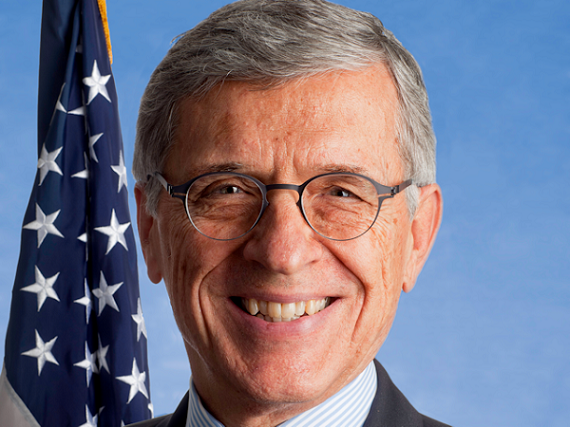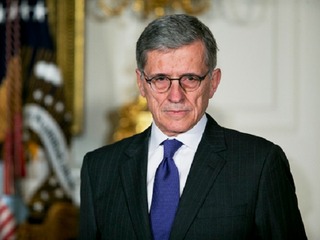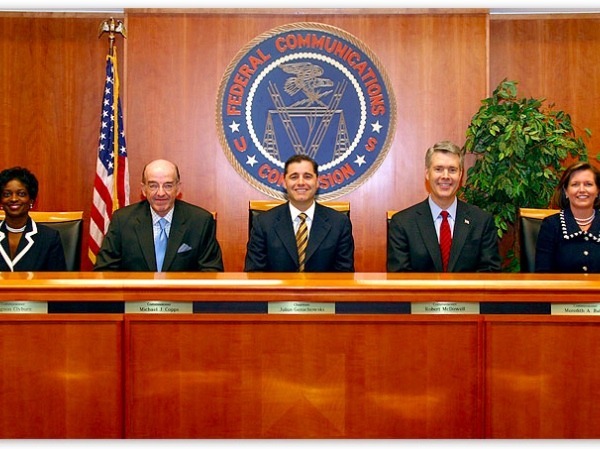

Net neutrality has been described by some as the defining issue of our time, and it really is. The issue has become pretty contentious, and many have been anxiously waiting for months to hear where FCC Chairman Tom Wheeler was going to come down on it.
And now we finally know what his new proposal is: he wants to reclassify the Internet as a utility.
“I am proposing that the FCC use its Title II authority to implement and enforce open Internet protections,” he wrote in an op-ed on Wired on Thursday. “Using this authority, I am submitting to my colleagues the strongest open internet protections ever proposed by the FCC.”
Doing so would “ban paid prioritization, and the blocking and throttling of lawful content and services,” which would effectively make the use of “fast-lanes” illegal.
Interestingly, it was actually Wheeler himself who had previously advocated for a “fast lane” approach. That idea that would have, essentially, created a two-tiered system, where websites who could pay more have access to faster speeds.
The FCC voted in favor of it in May, but nearly four million people had something to say about that plan, and the response was overwhelmingly negative. Now he has completely changed his tune.
Wheeler’s announcement should please President Obama, who has been a strong advocate for net neutrality, and has been urging Wheeler to regulate the Internet under Title II of the Communications Act.
The real impetus behind the proposal, Wheeler said, was to give consumers protection from broadband operators who may not be put the best interests of the public ahead of their own business interests.
“Broadband network operators have an understandable motivation to manage their network to maximize their business interests. But their actions may not always be optimal for network users,” he wrote. “The Congress gave the FCC broad authority to update its rules to reflect changes in technology and marketplace behavior in a way that protects consumers. Over the years, the Commission has used this authority to the public’s great benefit.”
The FCC is expected to vote on Wheeler’s proposal on February 26th. Congress is also expected to also take up the net neutrality issue, and introduce legislation that would preempt the rules the FCC will be voting on.
Net neutrality, in case you aren’t familiar, has to do with how content is treated by Internet service providers. Those in favor of net neutrality want the ISPs to treat all content the same, giving people access to the entire Internet. Those not in favor of it want ISPs to be able to charge premium rates for certain content, creating a tiered Internet.
The broadband operators are against the reclassification of the Internet as a utility, saying it will stifle innovation. There has even been talk that they may even sue the FCC if such a proposal were to go through.
AT&T wrote a blog post earlier this week, arguing against Wheeler’s proposal before it was even official.
“In order for the FCC to find that an ISP is operating as a common carrier, it would have to examine the terms on which that ISP holds itself out to customers to assess whether it offers to serve indifferently, or whether it retains the ability to decline to serve customers. The underlying record in this proceeding simply does not contain the level of detail needed for the FCC to determine that any ISP, let alone every ISP, holds itself out to serve customers indifferently,” AT&T said.
‘And in some markets, such as for peering and interconnection, the record is in fact quite clear that ISPs do not operate as common carriers, and expressly retain the right to refuse to provide service. These services are unique carrier-to-carrier arrangements commercially negotiated in a robustly competitive market and it would strain all logic to find that they instead are offered indiscriminately to the public for a fee, the core requirement of common carriage.”
What this will ultimately come down to is whether we want people to have unfettered access to information, if we want to allow for innovation and competition, or if we wish to allow the existing Internet giants, a.k.a. those with the money to pay for speed and access, to be allowed to maintain their positions with impunity.
This fight is far, far from over.
(Image source: en.wikipedia.org)




















